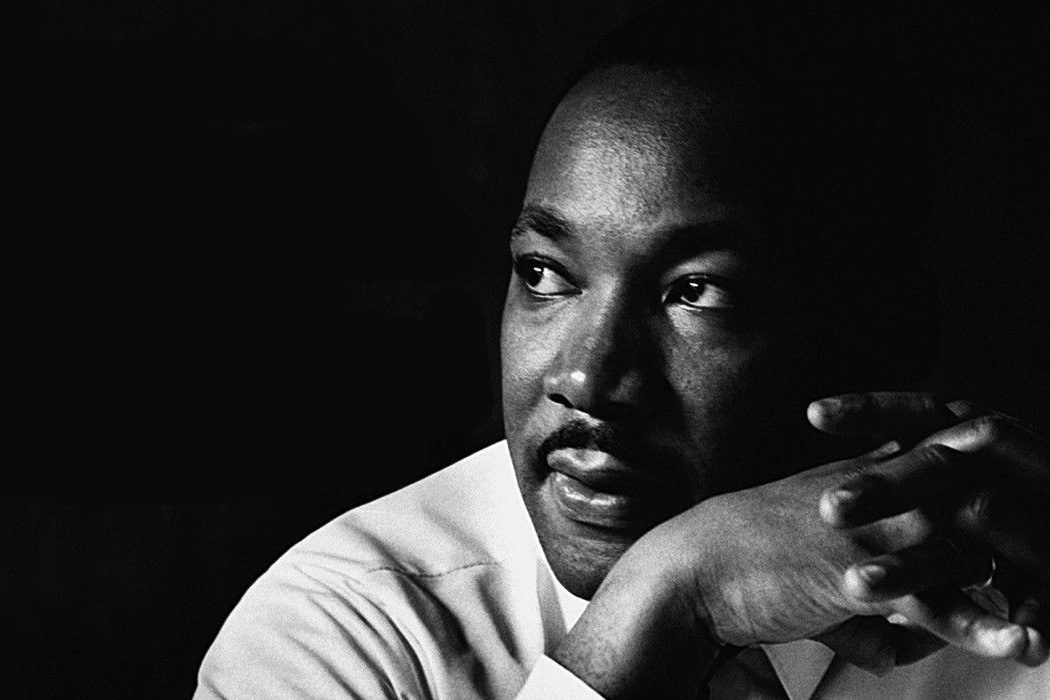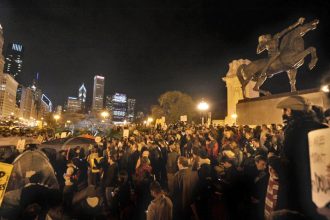Editor’s Note: The following essay by Jacob Miller won the top prize in a contest for St. Joseph County high school students on the theme of “Solidarity in Diversity,” sponsored by Three Rivers (Michigan) Area Faith Community (TRAFC). Each year, TRAFC organizes a celebration of Dr. King’s life and legacy, and the 2017 event includes a peaceful march, a community meal, and a service with live music and diverse speakers. The community members of *culture is not optional, the publisher of Topology, are active participants with TRAFC in working for justice and mercy in our community.
I am cognizant of the interrelationship of all communities and states…Injustice anywhere is a threat to justice everywhere. We are caught in an inescapable network of mutuality, tied in a single garment of destiny. Whatever affects one indirectly, affects all indirectly…Anyone who lives within the United States cannot be considered an outsider.
Dr. Martin Luther King, Jr.
During my middle school years, I experienced one of the most upsetting encounters of my young life. What I experienced, felt, and learned about myself and others that day will stay with me for the rest of my life.
It happened during school, in one of the most laid-back classrooms of the junior high. We, the entire class, had all finished our assignments with half the period to spare. Everyone was milling about, joking with others, congregating in our distinct social orders, and generally doing next to nothing. It was during this time when John accidentally bumped into a group of loitering students.
John, which is not the actual name of the student, was one of the most disliked kids in our grade, even though he was one of the brightest kids in the class. John was of a minority race in a predominantly white community, and his family was economically disadvantaged. Many of my fellow classmates disliked him for a multitude of reasons, all of which danced around the matter of his lineage: the way he dressed, or how John never reacted when people poked at him, and that he spoke with an accent. They poked fun at him because he wore the same shirt every day, and the soles of his shoes were peeling off. Nearly all students avoided John, and many students mocked him while his back was turned.
When John bumped into the group, he came under a vicious torrent of rebuke and disgust, upon which our teacher promptly sent John out into the hallway to wait while the teacher called a class meeting of sorts to discuss the matter of everyone’s distaste for him. Our teacher justly scolded every one of us for not treating him better, and after the scolding decided to let the class discuss openly why they disliked John. Nearly half of the class, many of whom were my friends, took it upon themselves to openly bash him, essentially saying that because he was different from themselves, he earned their hate and disgust. My teacher did nothing to stop this.
I witnessed this all from my seat in the farthest reaches of the room, where I sat in silent fury. I sat there, and I did absolutely nothing.
Justice is defined as fair treatment and just action, and doing all that is in one’s own power to do. Therefore, justice is doing all that you can to do the right thing. Injustice, though, is also performed in this sense, where one does nothing when it is within the bounds of their power to do the right thing. When someone chooses to do nothing about a completely unfair situation, especially when that person has full knowledge of the situation, that person performs injustice. Both justice and injustice are communal values, where injustice anywhere is a danger to all justice, and justice anywhere is a threat to injustice everywhere.
Knowing what justice is magnifies the struggles of humanity, both those that are in the past and those that are happening now. It helps you see that every struggle in every corner of the earth, no matter how large or small, ultimately affects all of humanity. Every right or wrong, done to any neighbor, affects not just your neighbor, but everyone whom that neighbor contacts, and so forth, until all people are affected by either your love and kindness, hate and distaste, or lack of any action at all. Humanity is not divisible by our color of skin, wealth, or opinion, because, no matter where you are on Earth, we are all united by our love for our neighbors, either through the overflow of love, or the lack of love.
Dr. Martin Luther King, Jr. was, and still is, one of the modern flagbearers of this principle, the truth of humanity’s solidarity in our diversity. Dr. King recognized, just as he wrote in his “Letter from the Birmingham City Jail” (1963), that every human being is part of a single web where every action or lack of action affects all humanity. With this idea in mind he set out, with all the power he could muster, to right a wrong created by ignorance: racism. He proved that whether you are the oppressed or the oppressor, you, as a human being, are given the opportunity to think, choose, and act on what is right, not just for you, but for all of humanity. Justice, which is harder to create than injustice, is threatening to both the oppressed and the oppressor because performing justice requires change. Change requires that one must adapt to the alterations in the environment, and therefore they must make a choice to either accept and ultimately live and thrive with these changes, or deny the incoming reality and live by not being or doing.
The fight for justice will be decided by our choice of action or inaction, and whether we act with peace and love in mind. As we learned from Dr. King, Mahatma Gandhi and countless others, it is futile to fight fire with fire, as the fire will only spread faster. Injustice cannot be fought with force, but only with every human’s choice to act with peace and brotherly love.
When I chose not to act and do the right thing for a fellow human being, even though it was completely within my power, I essentially made the choice to be a tool for injustice. That is a choice that I simply cannot live with, and it is with regret and full consciousness of what all my actions entail that I have chosen to act with companionship, love, and my fullest capacity for understanding. I have chosen to act in the coming year whenever injustice presents itself, and to act with the solid knowledge that all humanity holds common interests, that justice is only possible with a common solidarity for diversity.





